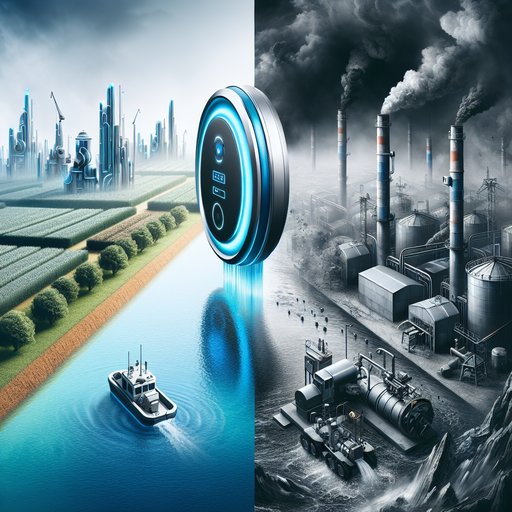
The projection that the water quality sensor market will hit USD 9.47 billion by 2032 highlights an urgent environmental truth: we are grappling with the consequences of industrial practices, particularly in agriculture, that are unsustainable and ecologically devastating. The rise in demand for real-time water quality monitoring is a direct response to the environmental degradation stemming from these practices, underscoring the need to reassess our reliance on industrial animal agriculture and emphasize sustainable alternatives.
The burgeoning market for water quality sensors is a testament to the escalating demand for technology that can monitor and mitigate the effects of pollution, especially from industrial agriculture. Massive animal farms, often prioritizing profit over environmental stewardship, contribute significantly to water contamination through runoff containing fertilizers, pesticides, and animal waste. As these pollutants seep into water bodies, they degrade ecosystems and threaten public health, necessitating comprehensive monitoring solutions to keep a check on these impacts. The imperative for advanced water quality monitoring also mirrors the broader regulatory push towards compliance amidst growing environmental concerns.
As governments worldwide grapple with the effects of pollution, they are increasingly implementing stricter regulations to curb contaminants released into natural water bodies. This regulatory landscape fuels the demand for real-time monitoring technologies, which serve as a critical tool for ensuring that industries comply with environmental standards and mitigate their impact on water resources. However, this reactive approach underscores a deeper systemic issue: the unsustainable scale of current industrial practices. Industrial animal agriculture's impact extends beyond water quality.
Its ecological footprint is immense, contributing to deforestation, greenhouse gas emissions, and loss of biodiversity. The focus on maximizing yield often results in environmental externalities that burden the planet's ecosystems. If unchecked, these practices could lead to irreversible damage, undermining the very resources upon which human and animal life depend. Therefore, while water quality sensors offer a technological salve, they cannot substitute for the systemic shifts needed to address the root causes of environmental degradation.
The ethical implications of mass-producing livestock in confined spaces, where animal welfare is frequently compromised for efficiency and profit, further complicate the narrative. The conditions in which many animals live are often harsh, raising profound moral questions about the cost of cheap meat. Sustainable farming practices, which prioritize animal welfare and ecological balance, present a viable alternative. These practices often result in a smaller carbon footprint and contribute less to water pollution, aligning better with the growing call for ethical consumption.
Promoting plant-based diets and reducing meat consumption can significantly alleviate the environmental pressures associated with industrial animal agriculture. By shifting towards diets that rely less on animal products, we can reduce the demand for resource-intensive livestock farming. This shift is not merely about consumer choice but also requires policy interventions that incentivize sustainable agricultural practices and support innovation in alternative protein sources. Encouraging local and organic farming initiatives can also play a crucial role, fostering resilience and reducing dependency on large-scale industrial systems.
Reforming our food systems to prioritize sustainability and ethics is no small feat. It requires an integrated approach involving innovation, education, and policy change. Incentives for adopting sustainable farming practices, coupled with public awareness campaigns about the impacts of industrial agriculture, can help transition towards more ethical food systems. Similarly, investment in research and development of plant-based alternatives can catalyze the shift needed to meet future food demands without compromising environmental integrity.
Ultimately, while real-time water quality monitoring is essential in the fight against pollution, it is not a panacea. It highlights a fundamental need to rethink the scale and nature of industrial practices that jeopardize environmental and human health. The future of our planet's water resources—and by extension, our survival—depends on our ability to integrate sustainable practices into the heart of agricultural production. By doing so, we not only protect our water but also forge a path towards a more sustainable and ethically sound future.









































